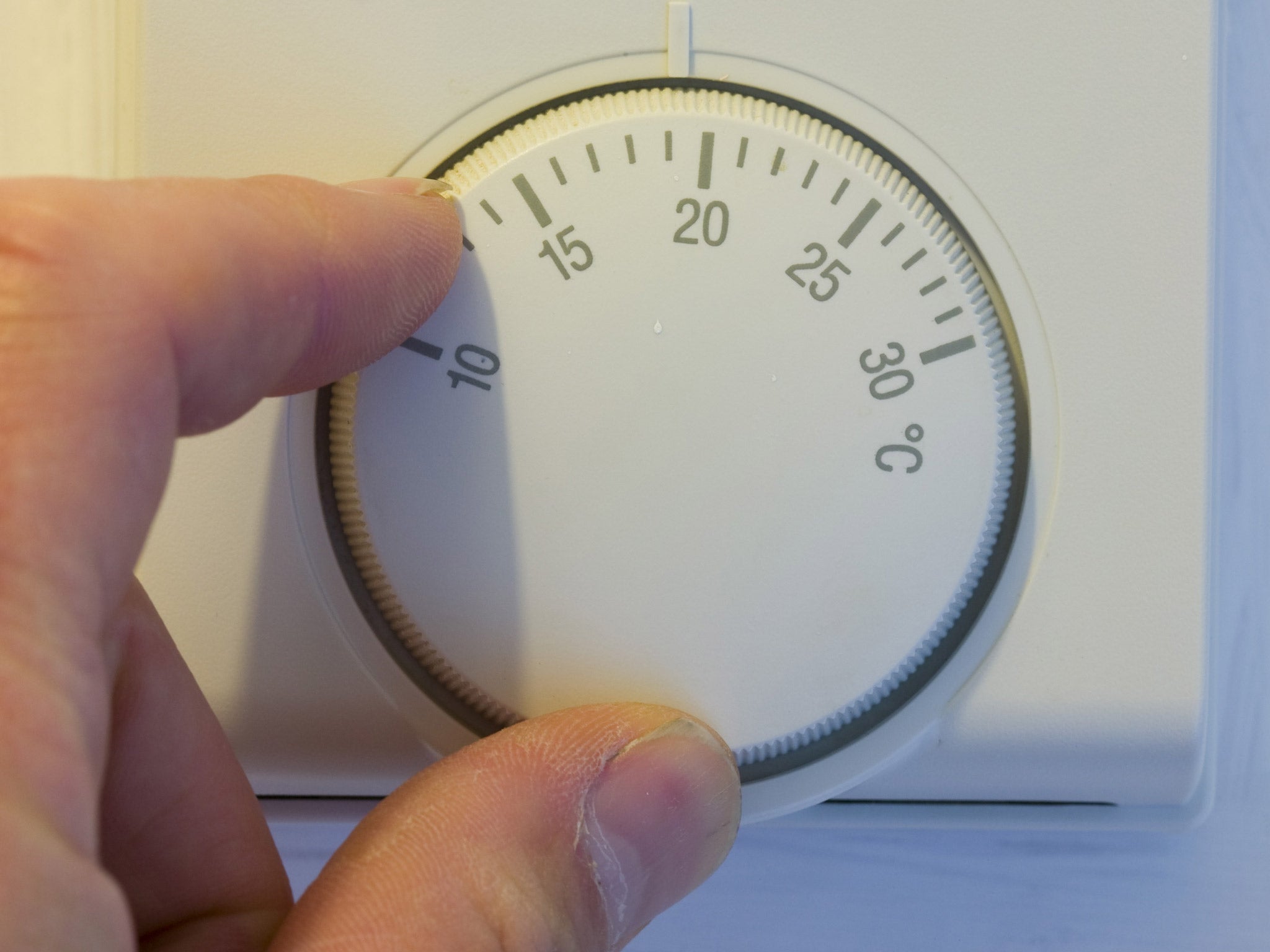How to stay slim? Scientists recommend turning down your central heating
Feeling the cold may be a healthy and sustainable way to lose weight

Turning the central heating down not only saves money but could keep you slim, say scientists.
Evidence suggests that feeling the cold may be a healthy and sustainable way to lose weight, experts believe.
Conversely, warm and cosy homes and offices may be contributing to expanding waistlines, it is claimed.
The theory from Dutch scientists follows 10 years of research into the effects of mild degrees of cold on metabolism.
It suggest that a more variable indoor temperature, one that more closely mirrors temperatures outside, may be beneficial.
At least among young and middle-aged people, non-shivering heat production in response to feeling cold can account for up to 30 per cent of the body's energy budget, say the scientists.
That means lower temperatures can significantly affect the number of calories burned up instead of being stored as fat.
Lead researcher Dr Wouter van Marken Lichtenbelt, from Maastricht University Medical Centre, said: “Since most of us are exposed to indoor conditions 90 per cent of the time, it is worth exploring health aspects of ambient temperatures.
”What would it mean if we let our bodies work again to control body temperature? We hypothesise that the thermal environment affects human health and more specifically that frequent mild cold exposure can significantly affect our energy expenditure over sustained time periods.“
One research group in Japan had shown a decrease in body fat after volunteers spent two hours a day at 17C for six weeks, said the Dutch scientists.
The Maastricht team also found that people got accustomed to the cold over time. After six hours a day in the cold for a period of 10 days, levels of heat-generating brown fat in the body increased and people became more comfortable and shivered less.
Writing in the journal Trends In Endocrinology & Metabolism, the researchers concluded: ”Indoor temperature in most buildings is regulated to minimise the percentage of people dissatisfied. This results in relatively high indoor temperatures in wintertime.
“This is evident in offices, in dwellings and is most pronounced in care centres and hospitals. By lack of exposure to a varied ambient temperature, whole populations may be prone to develop diseases like obesity. In addition, people become vulnerable to sudden changes in ambient temperature.”
PA
Join our commenting forum
Join thought-provoking conversations, follow other Independent readers and see their replies
Comments
Bookmark popover
Removed from bookmarks